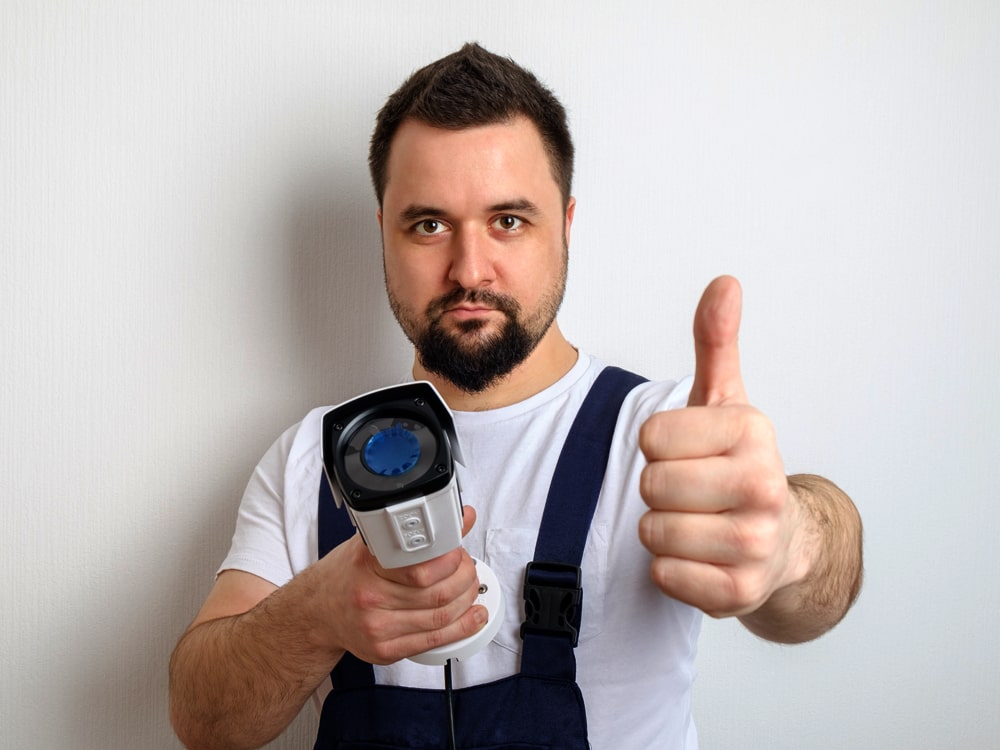Security systems have become an integral component in any modern property. It deters crime in your home, contributes to lower insurance premiums, and gives you the peace of mind that you deserve. When it comes to installing a security system, you generally have two choices: have it professionally installed or do it yourself (DIY). There are pros and cons to each method and it all depends on your personal preferences.
If you’re contemplating about having a security system in your home but you’re unsure how to install it, then this guide is for you. This article will cover everything you need to know about security system installation to help you make an informed decision.

Advantages of professional installation
The best part about having your system professionally installed is that you can sit back, relax, and let the experts take care of everything. They’ll set up the wirings and install the security cameras and sensors in the right places. It eliminates the guesswork and ensures that every device in your security system is set up properly. If you’re relatively inexperienced in installing electronic devices, then we highly recommend letting the professionals do the installation process.
With a professionally installed security system, you’ll be able to benefit from the technician’s experience and expertise. They’ll provide a thorough security assessment of your property and fortify any weaknesses in each entry/exit point. That way, all areas of your home are secured and there will be no vulnerable spots that criminals can take advantage of.
Disadvantages of professional installation
Although a professionally installed security system has plenty of benefits, it does have its own drawbacks. For one, this type of installation can be quite expensive, with fees ranging from $300 all the way up to $1,000 (depending on the complexity of the security system). You’ll also have to enter a contract and pay a monthly fee of around $15-$35. This can quickly add up over time, which can hinder your budget if you’re renting a property.
It can also be inconvenient to set an appropriate schedule where the installer is available. You’ll have to set aside other commitments to monitor the entire installation which usually takes around 2-3 hours. Aside from those things, you won’t find anything else wrong about a professionally installed security system and it’s the installation method that we highly recommend.
Advantages of a DIY installation
Going with the DIY route means you have full control on how you want your security set up. Most security system companies offer wireless DIY security system packages, thus making the installation process a breeze. You don’t have to drill holes or deal with complicated wirings to install the devices, which brings us to its other benefit and that is portability. DIY security systems are portable and rely only on adhesives to stay in place. This is perfect for renters who are looking to double up on their security measures and have their security system with them wherever they go.
If you’re proficient in installing security systems and you don’t like the idea of making monthly payments, then a DIY installation is right for you. In general, DIY security system packages are also more affordable, allowing you to save on upfront costs and avoid getting tangled up on a long-term contract. If you run into any technical issues, then don’t worry — most companies that offer DIY security system packages can provide assistance via phone or online.
Disadvantages of a DIY installation
The most obvious downside to a DIY security system installation is the risk of errors. If you don’t have adequate installation skills, there’s a good chance you might place a motion sensor too high or install a security camera in the wrong angle. This can leave a vulnerable spot in your home and render your security system useless.
With a DIY installation, you’re solely accountable for how your security system functions. That means it’s up to you to perform maintenance checks lik testing out the sensors, re-fastening the adhesives, and replacing the batteries. We suggest staying away from DIY security systems unless you know exactly what you’re doing and you have sufficient experience in installing one.
Which one is better?
While both installation methods have their fair share of advantages and disadvantages, we highly suggest that you opt for a professional installation. A professionally installed security system leaves little room for errors and ensures that your home is adequately protected from all four corners. If you have the budget and you’re looking to take your home security to the next level, then a professionally installed security system should be your first choice.
That doesn’t mean you shouldn’t consider a DIY installation method. We can only recommend this type of installation to seasoned experts who are well-versed in installing security systems. If you feel confident with your installation skills and want more control over your security system, then going the DIY route is definitely worth considering.

